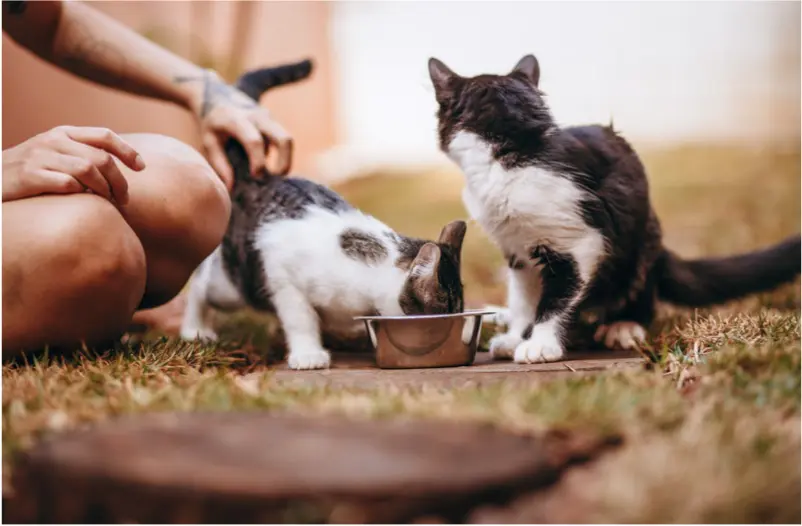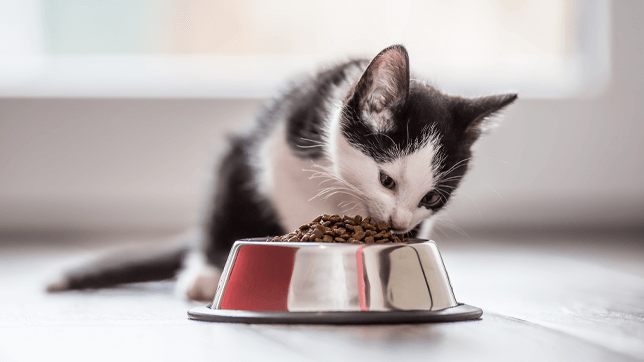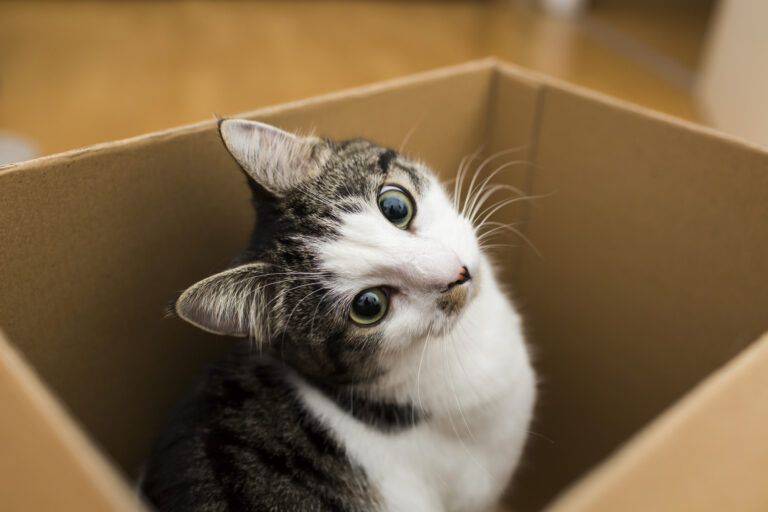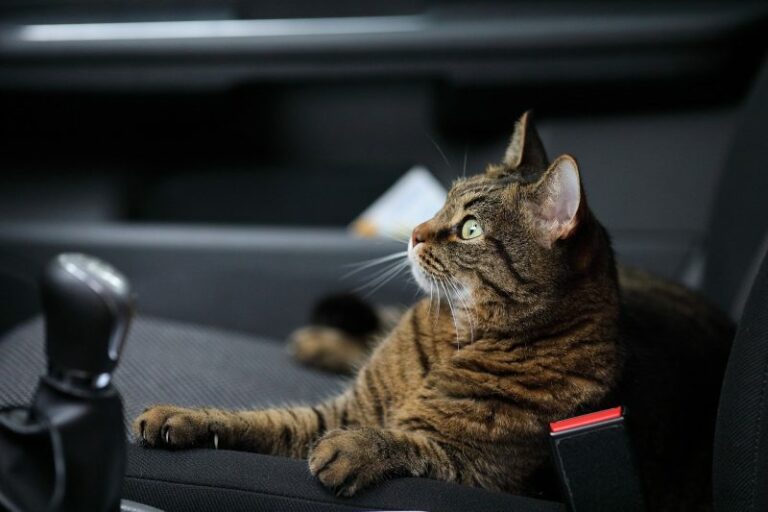Why Is My Cat Always Hungry?

Cats are typically grazers who snack throughout their waking hours, so if your cat finishes their meals and asks for more, this may indicate a problem, ranging from boredom and medical causes to simply needing more calories. Different commercially available foods have different caloric contents, and you can typically find a guide on the food container.
Because a cat’s metabolism is impacted by their individual characteristics, including age, weight, and spay/neuter status, ask your veterinarian for guidance on determining your cat’s ideal body weight. Your veterinarian can suggest how to adjust your cat’s meal plan to safely reach and maintain their target weight. Your veterinarian may even recommend switching your cat to one of several other food options that can help them feel full and satisfied between meals.

Some cats are better than others at cutting themselves off from the kibble when they’re no longer physically hungry. No different from some humans, some bored house cats have been known to snack purely out of boredom. Unfortunately, snacking when they aren’t actually hungry can lead to a host of medical conditions, including obesity, osteoarthritis, urinary problems and diabetes mellitus. According to Cornell Feline Health Center, obese cats are twice as likely to pass away when they’re middle-aged (that’s ages 6-12 for cats) compared to cats with a healthy weight. With this in mind, keeping your kitty occupied with activities beyond another trip to the food dish is a smart move on your part and well worth the effort.
When a "Healthy Appetite" Is More Than "Healthy"
If you have trouble easily feeling your cat’s ribs or you can’t easily identify your cat’s waist when looking down from above your cat, they may be overweight. A consistent feeding schedule may be all that they need. Many pet parents choose to free-feed their cats; however, this can lead to extra pounds and unwanted health consequences, such as joint disease and diabetes mellitus, for those cats who lack self-control.
Remember, your cat’s needs will vary depending on their size, energy level and health. Your cat’s age will also play a role, as a cat’s metabolism slows as they age, similar to our own. Your veterinarian will be able to provide a target weight and daily calorie number your cat should be consuming.
Other symptoms to look out for if your cat is always hungry
- Weight loss or weight gain
- Drinking and weeing more than normal
- Changes to their skin or hair coat
- Lethargy
- Vomiting or diarrhoea
- More active than usual or irritable
If your cat never seems to reach satiety, it's best to have your veterinarian examine them to ensure there isn't an underlying medical concern.
Cat Hungry All the Time? Medical Causes of Increased Appetite
If your cat never seems to reach satiety, it’s best to have your veterinarian examine them to ensure there isn’t an underlying medical concern.
Hyperthyroidism: This occurs when there’s an excess of circulating thyroid hormones. Weight loss despite an increased appetite is a classic sign of this hormonal disease. Other signs may include muscle wasting; vomiting; increased thirst and urination; and behavioral changes, such as nervousness, hyperactivity and increased vocalization.
Internal parasites: These parasites can quite literally steal the food your cat ingests, making your cat appear endlessly hungry, even though they aren’t getting the nutrition they need to thrive. Just because you don’t see worms in your cat’s stool doesn’t mean their gastrointestinal tract is parasite-free. An unkempt coat and runny stools are other signs.
Diabetes mellitus: Also known as sugar diabetes, this condition causes cats to have a strong appetite while losing weight. Other clinical signs are increased water consumption and urination.
Cancer: Though a nonspecific diagnosis, cancer is another cause of increased appetite in cats. Systemic and intestinal cancers, in particular, can increase a cat’s caloric needs, while they often don’t appear to put on any weight.
Related Articles

Tips for Moving to a New Home With a Cat
Moving is a stressful event for every family member, with children changing schools, leaving old friends…

How to Travel with Cats
Make the carrier a regular part of your home by keeping it out in a room where your cat…
Healthy Dental Practices for Pets
Brushing your cat’s teeth regularly is an essential component to maintaining a healthy lifestyle for her. Nearly 90 percent of cats develop dental problems over
